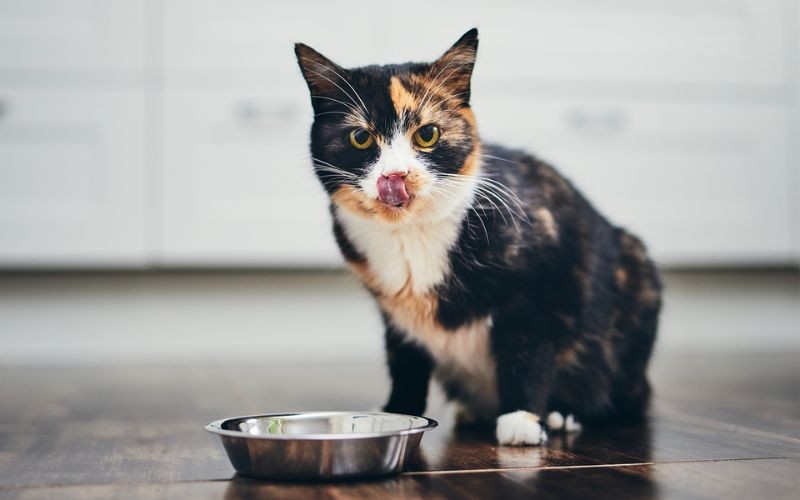
Why is my cat always hungry?
Cats are usually known for being finicky eaters but can sometimes surprise their pet parents with insatiable appetites. If you've found yourself wondering, "Why is my cat always hungry?" It’s essential to delve into the potential reasons behind this behavior. Understanding these factors can help address your cat's needs appropriately.The reasons may vary depending on the pet and can range from simple boredom or food choice to more serious medical conditions such as diabetes or hyperthyroidism. In all instances, it's important to monitor this newly increased appetite and understand its underlying causes. Avoid encouraging it to prevent the onset of overweight/obesity and the related health issues associated with it. To learn more on the risks of obesity in pets read the dedicated Genius Tips Article
Let's explore some common explanations and solutions for your perpetually hungry feline friend.
Boredom
Particularly for indoor cats, incessant request for food may originate from a simple cry for attention or plain boredom. If your cat's appetite has increased alongside weight gain and a lack of stimulation, try enriching your home environment or picking one of the many fun and engaging activities suggested in this genius tips article to keep him physically and mentally engaged.
Low-quality food choice
The quality of your cat's food plays a significant role in his satisfaction and overall health. Low-quality diets may lack all the necessary nutrients to keep him happy and satisfied, thus leaving your pet perpetually hungry.
How to recognize a high-quality food? Learning to read food labels is the first active step each pet parent can take to determine the correct food for their pet. This simple action will help clear your initial doubts on the quality of the chosen diet.
Don’t know how? Read our dedicated article on understanding pet food labels.
Remember that your cat deserves the best.
Discover our full range of high-quality foods for cat!
Shop Now
Revamping the meal plan
The nutritional needs of cats evolve as they age or experience lifestyle changes. Revamping their meal plan to adjust for factors like age, activity level, and special health conditions, ensures they receive adequate nourishment.
The simplest way to always be on top of your cat’s nutritional needs is to contact a Farmina Nutrition Consultant and create a dynamic nutrition plan, that will adapt to the everchanging needs of your pet. It's crucial to note that any change in diet should still be done gradually over at least 10 days.
Should you visit the vet?
While boredom and dietary choices are common culprits, persistent overeating may indicate underlying health conditions that require medical attention.
If your cat exhibits symptoms such as vomiting, diarrhea, weight loss or excessive weight gain, increased thirst, lethargy, or behaviors that depart from the norm, it's crucial to consult a veterinarian. Your cat’s overeating may be caused by conditions such as (and not limited to) diabetes, intestinal parasites, hyperthyroidism, or medication side effects.
If in any instance you feel concerned about your pet’s sudden change in behavior or health, we strongly suggest booking an appointment with your veterinarian in order to assure the health and well-being of your pet.
Conclusion
By understanding the various factors contributing to your cat's perpetual hunger and implementing appropriate solutions, you can foster a healthy and happy feline companion. Whether it’s contacting a Farmina Consultant to create a dynamic nutrition plan, enriching their environment, or seeking veterinary guidance, addressing your cat's needs comprehensively promotes their overall happiness and vitality.

